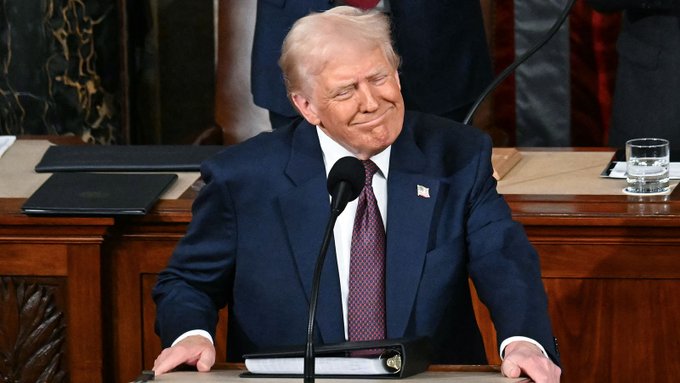Germany has declared it “will not give in” and insists that Europe must “respond firmly” after US President Donald Trump announced a 25% tax on imported vehicles and car parts.
Other global economic powers have vowed retaliation, with France calling the move “very bad news,” Canada labeling it a “direct attack,” and China accusing the US of breaching international trade regulations.
Following the announcement, stock prices for German automakers Porsche, Mercedes, and BMW dropped sharply in Frankfurt, along with shares of French auto giant Stellantis, which owns brands like Jeep, Peugeot, and Fiat.
Trump has warned of “far larger” tariffs if Europe collaborates with Canada in actions he claims are aimed at harming the US economy.
What Are Tariffs, and Why Is Trump Imposing Them?
The new car tariffs will take effect on April 2, with levies on vehicle imports starting the next day. Tariffs on auto parts will follow in May or later.
Trump argues that these measures are meant to support American manufacturing, emphasizing that “if cars are made in America, there will be absolutely no tariff.”
Also Read: Leaked Secrets Scandal: Mike Waltz Takes the Fall, But Who Else Is to Blame?
Tariffs are taxes placed on foreign goods entering a country. While they can shield domestic industries, they also increase costs for businesses that rely on imported parts. Importing firms pay these taxes to the government, and many pass the additional expenses on to consumers.
The US imported approximately eight million vehicles last year, totaling around $240 billion in trade. Mexico supplies the highest number of cars to the US, followed by South Korea, Japan, Canada, and Germany.
Analysts from Anderson Economic Group estimate that tariffs on Canadian and Mexican auto parts alone could drive up vehicle prices by $4,000 to $10,000, depending on the model.
Watch: What can Germany do to counter Trump’s new 25% car tariffs?
Global Backlash Intensifies
German Economy Minister Robert Habeck stressed that the EU must “respond firmly” and called for strength in dealing with the US.
France supports a united response, with Finance Minister Eric Lombard asserting that Europe’s “only solution” is to impose retaliatory tariffs on US products.
“We are in a situation where we are being targeted. Either we accept it, in which case this will never stop, or we respond,” he added, emphasizing the need to “rebalance the playing field” to push the US into negotiations.
Canadian Prime Minister Mark Carney described the tariffs as a “direct attack” on Canada’s auto sector, acknowledging the damage they will cause while confirming that alternative trade strategies are being considered.
The UK’s automotive body, SMMT, stated that while Trump’s announcement was expected, it remains disappointing.
John Neill, founder of Uniparts, warned that Trump’s tariff policy could benefit China, as consumers and businesses may turn to Chinese alternatives amid a potential trade war.
Meanwhile, China has accused the US of violating World Trade Organization rules and warned that trade wars have no real winners.
Japan has also voiced strong opposition, saying the new tariffs will “significantly impact” its trade relationship with the US. A government representative called the decision “extremely regrettable” and confirmed that Japan has requested an exemption.
South Korea Makes a Strategic Move
Ahead of the tariffs, Hyundai announced a $21 billion investment in the US, including a new steel plant in Louisiana.
Trump hailed Hyundai’s investment as a “clear demonstration that tariffs very strongly work.”
Meanwhile, German-based Bosch remains optimistic, stating that it sees long-term growth potential in North America and plans to continue expanding its presence there.
